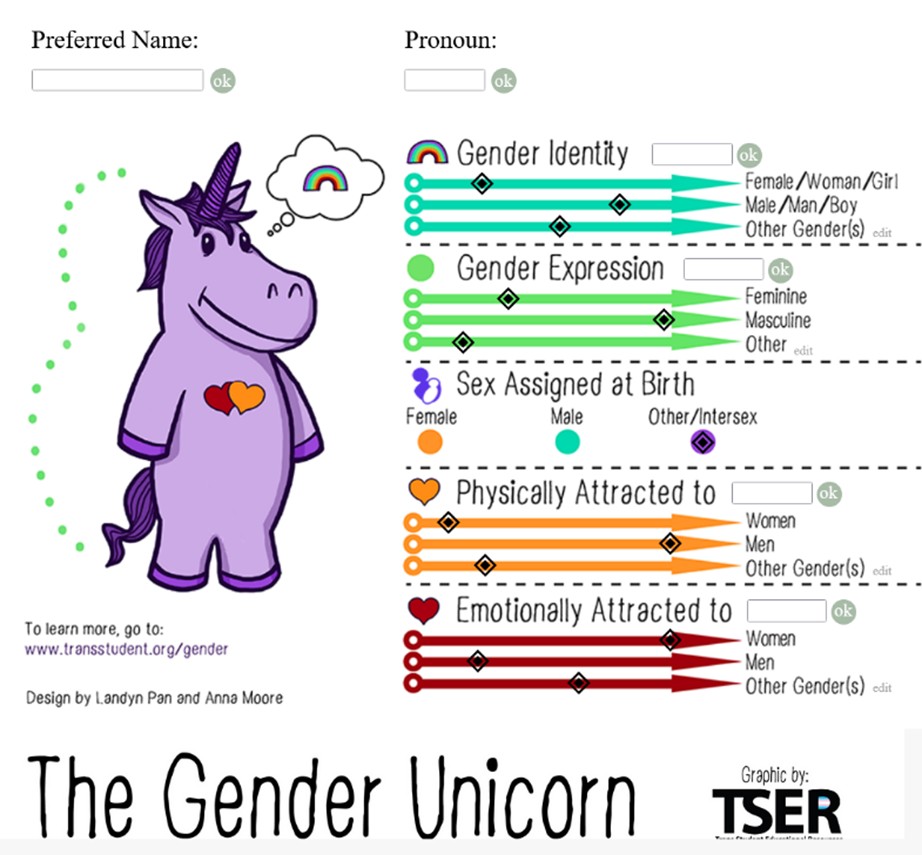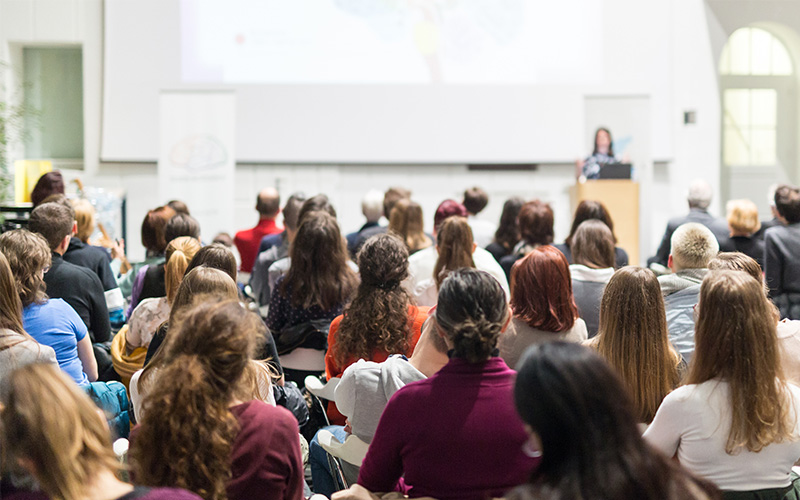Updated 3/2/2025 to include reference to the “Gender Unicorn” in item 12 and to add the “Law for Librarians” session as item 16.
In May 2021, in response to a request for an opinion from Montana Superintendent of Public Instruction Elsie Arntzen, Attorney General Austin Knudsen concluded that, “‘Critical Race Theory’ and ‘antiracism’ programming” often “discriminates on the basis of race, color, or national origin” in violation of both the U.S. and Montana constitutions and both federal and state civil rights law.
Amanda Curtis—president of the Montana Federation of Public Employees (MFPE), the labor union representing most public-school teachers and many other public employees in Montana—responded to the opinion by accusing Knudsen and Arntzen of “working together to politicize school curriculum.”
In reality, the opinion addressed a politicization of public education by liberal interests like MFPE that had begun long before 2021 and has continued apace since.
Just last month, the MFPE conducted its annual “Educator Conference” in Bozeman, a two-day hybrid virtual/in-person conference for public school teachers consisting of dozens of presentations and panel discussions. Attendance at conference programs earns educators professional development credits needed to maintain their state teaching certificates.
While some of the programming appeared uncontroversial and oriented towards increasing teachers’ practical knowledge and professional skills, a review of the conference agenda shows that many presentations were entirely and explicitly political in nature and/or shot through with progressive ideology.
As discussed in more detail below, at least seven presentations were specifically focused on electoral politics and lobbying, even including presentations by union-endorsed candidates for office. Other panels covered the whole gamut of woke issues du jour including, but not limited to: “historical activism,” countering purported “book banning,” “EcoSchools,” “equity training,” promoting “LGBTQ+ issues,” fighting “microaggression at the workplace,” “indigenous pedagogy,” and implementing “diversity, equity, and inclusion (DEI) trainings.”
Taxpayer-funded indoctrination
More disturbing than the content of the MFPE conference programming is the fact that Montana taxpayers had to foot the bill for educators to attend the union’s indoctrination. For decades, Montana law has required school districts to “close the schools… for the annual instructional and professional development meetings of teachers’ organizations.” Not only may teachers attend such meetings “without loss of salary,” but teachers who do not attend “may not be paid.”
A similar state law permits school districts to schedule up to three district-paid “pupil-instruction-related days” for “teacher activities devoted to improving the quality of instruction,” such as “attending state meetings of teacher organizations.”
Accordingly, many school districts shut down for the MFPE Educators Conference and expect or encourage their teachers to participate. For instance, the teachers union contract for Fairview School Districts Nos. 3 and 13 provides, “[s]chool will be dismissed for the annual M.F.P.E. Educators’ Conference. Twelve (12) Pupil-Instruction-Related (PIR) hours will be credited to those who attend the convention…”
In the West Yellowstone School District, the teachers union contract goes even further, providing three days’ leave “at full salary” to each teacher for activities like “attendance at educational conferences.” Teachers who use this time to attend the MFPE Educators Conference “will receive a $75/day stipend.”
MFPE is a private organization. If it wishes to host a woke conference for educators, it is free to do so. If public-school teachers wish to attend a teachers union conference and learn about how to become political activists, they have every right to do so on their own time. And if MFPE wants to host an apolitical conference with content that satisfies applicable state standards, then it’s appropriate for attending educators to receive professional development credits. But there is no justification for forcing taxpayers to pay for public-school teachers to attend political events hosted by progressive special interest groups.
As they prepare for the upcoming 2025 legislative session, Montana lawmakers should reevaluate whether it serves the public’s interest to give government unions a blank check to engage in union advocacy and administration at taxpayers’ expense.
The following is a summary of select sessions from the MFPE conference.
Political sessions
1. Session: “Candidate Forum”
MFPE description:
“Meet MFPE member-endorsed candidates for US Congress, Governor, Statewide office, and the MT Legislature. Ask them questions about their plans for our state and all things MFPE.”
While it is not clear which candidates attended the session, there’s a strong likelihood that those who did participate were all of the same political party. Of the nine candidates for federal or statewide office MFPE endorsed in the 2024 general election, all were Democrats or Democrat-affiliated. Of the 74 candidates for state legislature who received an MFPE endorsement, only 10 were Republicans.
And, as the Freedom Foundation has previously documented, MFPE tends to only endorse Republican candidates in safe districts who lack a credible Democrat opponent, while it pours its political spending into backing Democrats in competitive races.
The session was hosted by MFPE president Amanda Curtis, a former Democrat state representative and repeat congressional candidate.
2. Session: “Current Political Issues”
MFPE description:
“Come meet and discuss current issues germane to teachers. Local political candidates will be there to answer your questions and describe their ideas.”
Sounds about the same as the candidate forum, and probably was.
3. Session: “Amplify our Voices and Influence”
MFPE description:
“This will be a brief presentation by 3 educators who have transitioned to running for office at the local-school board, city council or other, state or federal level. The goal is to present decision-making processes, experience with running or in office and providing encouragement to others to run.”
The session was facilitated by Melody Cunningham, a Democrat just elected to the Montana House of Representatives. The three session panelists included Eric Matthews and Melissa Romano, both incumbent Democrat state representatives, as well as Colette Campbell, who ran unsuccessfully for state representative as a Democrat in 2020.
It’s unclear how a partisan presentation encouraging educators to run for elected office qualifies as professional development, but MFPE appeared to host essentially the same session twice, once on each day of the conference.
4. Session: “The Montana Legislature and 2024 Elections”
MFPE description:
“What happened in 2023? What can we expect in 2025? MFPE Lobby Team summarizes the last legislature and speculates on the next. The MFPE political team summarize the member-led endorsement process for local, state, and federal races.”
The session was facilitated by MFPE president Amanda Curtis.
5. Session: “Public School Strong Orientation”
MFPE description:
“#PublicSchoolStrong. Public funding for public education will be one of the top fights at the 2025 session of the MT Legislature. Participants will train to advocate for school funding in public settings and sign a pledge to support public schools.”
The session was also facilitated by MFPE president Amanda Curtis.
Woke sessions
6. Session: “Teaching about the Middle East”
MFPE description:
“Are you teaching about the Middle East, Islam, or Arab culture? Learn how from Montana’s only high school Arabic teacher! There are many fun ways to integrate Middle Eastern languages, cultures, and history into your class, no matter the subject.”
The presenter, Brendan Work, is an outspoken progressive and anti-Israel activist who:
- described President Trump as “a demon from hell”;
- described Montana Gov. Greg Gianforte as “a filthy creep and a thumb-looking freak”; and
- wrote that “patriotism is a disease” and condemned America as “a military colonial state that won’t even pay for our health care.”
7. Session: “Extreme History Project of Bozeman”
MFPE description:
“Extreme History believes in setting a Truth Agenda which will work toward eradicating political and social agendas from the traditional historical narratives and pursue a more balanced and honest expression of the past.”
The two presenters for this session, Crystal Alegria and Sandra Oldendorf, were progressive activists affiliated with the Bozeman-based Extreme History Project. According to the neo-Marxist “Historical Activist Manifesto” posted on the organization’s website, part of its mission is to “actively engage in “political / social REVOLUTIONARY PARADIGM SHIFTS.”
8. Session: “Intellectual Freedom in the Era of Book Banning”
MFPE description:
“Participants will learn about available intellectual freedom resources, dealing with book challenges, ways to minimize potential challenges and having difficult conversations… Participants will leave with a list of resources and ideas for navigating these challenging topics.”
The presenter for this session was Dr. Donna Bulatowicz, a professor at Montana State University Billings who survived tragic sexual abuse as a child and now advocates for sexual abuse prevention and training. However, more relevant to this presentation, Bulatowicz specializes in “diverse children’s literature” and advocates for the use of children’s books featuring LGBTQ+ characters and themes.
A PowerPoint presentation and other materials accompanying Bulatowicz’s session at the MFPE conference suggests an emphasis on opposing or circumventing legislation adopted by the Montana Legislature in 2021 requiring schools to provide parents with advanced notice of the content of, and permit them to opt their children out of, “human sexuality instruction.”
9. Session: “Culturally-Sustaining Practices for Native American Learners and Beyond: Indigenous Pedagogy”
MFPE description:
“In this session, participants will engage in an interactive exploration of culturally-sustaining and culturally-revitalizing practices that honor Native American perspectives in education… The presentation will begin with an overview of the key principles underlying culturally-sustaining and culturally-revitalizing pedagogies, emphasizing the importance of centering Indigenous knowledge and perspectives in educational settings. We will then explore specific practices, such as place-based learning, which grounds education in local landscapes and communities, and storytelling, which preserves cultural traditions and fosters connection and empathy. Furthermore, we will examine the role of all-senses experiential learning in engaging learners on a deeper level, trust building as a foundation for meaningful relationships between educators, families, and students, and affirming Native American students to validate their identities and experiences. Finally, we will discuss the importance of recognizing Indigenous ways of knowing, which acknowledges diverse ways of understanding the world and promotes critical thinking and cultural resilience. In the second part of the presentation, the presenter will demonstrate how these practices can be applied across diverse content areas, using a practical example to illustrate their implementation in real-world educational contexts.”
10. Session: “EcoSchools US: A New & Sustainable Path Forward”
MFPE description:
“Join the National Wildlife Federation staff as we delve into the newly redesigned EcoSchools US program… Together, we’ll explore how teachers can wield the EcoSchools US framework to empower students in leading actions that contribute to building a more sustainable school and community and uncover the potential for positive change on our planet through student-led initiatives.”
The National Wildlife Federation describes EcoSchools as “a certification program for elementary through secondary schools that nurtures environmental learning and climate action.”
11. Session: “Introduction to Leaders for a Just Society”
MFPE description:
“The goal for this session is to introduce participants to equity training and to encourage them to commit to further trainings surrounding equity in schools and communities… This is a discussion based session and encourage participants to create a ‘Brave Space’ for all.”
According to MFPE’s website, “Leaders for a Just Society” is an online professional development course offered by the union and geared towards educators. Covered subject matter includes:
- “equity as mindful practice”;
- “concepts of privilege and how privilege creates inequity”;
- “implicit bias”;
- using your voice to “advocate for equity and a just society”;
- “Systemic Oppression,” including “internalized and transferred oppression” and how “privilege” and “systemic oppression transfers into our schools, workplaces, and public services”;
- creating “an awareness of the -isms that exist and… how -isms affect public systems in oppressive ways”;
- “understanding microaggressions”;
- the “Six-Circle Model of Technical and Relational Inequities”; and
- “concrete ways to promote equitable practices in our work.”
12. Session: “LGBTQ+ State of the State”
MFPE description:
- “explore, learn, and fully discuss LGBTQ+ issues and how it impacts our students, educators, families, and communities;
- review current state and local policies and practices that impact LGBTQ+ issues and identify possible changes to current policies and practices, or potential new ones needed in order to address the issue; and
- create implementation plans that address LGBTQ+ issues with a clear focus on promoting student learning, student success, and quality teaching and learning environments.”
The presenter for this session was Anthony Brisson, a senior policy analyst for the NEA’s Human and Civil Rights Department who “is a racial and social justice advocate with a focus on LGBTQ+ equality.”
The session also involved a handout labeled, “The Gender Unicorn,” which depicts “gender identity,” “gender expression,” “sex assigned at birth,” “physical attraction,” and “emotional attraction” as distinct from each other and existing on sliding scales.

Apparently, the predecessor to the “Gender Unicorn” — the “Genderbread Person” — had to go because it did not sufficiently “recognize genders outside of the western gender binary” and used the outdated term “biological sex.”
13. Session: “Micro aggression at the work place”
MFPE description:
“This presentation will focus on microaggression at the workplace. We will spend some time to identify what are microaggressions, how to address them, and how to avoid them in the first place. The presentation will be interactive, while some time will be spent on defining microaggression.”
The session’s speaker, Luc Guglielmi of Kennesaw State University in Georgia, teaches French and women and gender studies.
14. Session: “Rethinking Diversity Training – it does work, when its done right!”
MFPE description:
“The world has become a more global and interconnected place that requires individuals to communicate, learn and collaborate effectively and efficiently with others in diverse environments. One of the results of that development is that the need for, diversity, equity, and inclusion (DEI) trainings has increased and trainings have become more common…”
15. Session: “1972 Montana Constitution – History & Threats”
MFPE description:
“Mae Nan Ellingson would be the primary speaker for Friends of the Montana Constitution. Mae Nan is one of only 9 Constitutional Convention (ConCon) delegates still living (9 of the 100 citizen delegates who crafted our wonderful Constitution in 1972)… As Vice Chair of the Friends of the Montana Constitution, Evan Barrett would be in a supportive role. Along with the relevant history (1889 Constitution – movement for change – 1972 Constitutional Convention – and what’s happened in last 52 years) and status of the Constitution (the current situation where, after many efforts to change key elements of our Constitution, recent Legislatures have been attacking the Constitution) and presentation about how that might be approached during the 2025 Legislative Session.”
Ellingson is a noted Montana attorney and progressive activist, while Barrett is also a Democratic Party-aligned activist.
16. Session: “Law for Librarians”
The purpose of this session was to “aid library workers in addressing censorship challenges and defending access to the library and its resources” – Translation: Ensuring inappropriate, far-Left materials remain in school libraries.
The presenter, Missoula public school librarian Jen Hossack, opposes efforts by conservative states to remove inappropriate materials from school libraries, deriding such efforts as book banning and censorship (even though the books remain available for purchase by anyone who wants them), while applauding efforts by progressive activists to target the Bible for removal from public schools.
MFPE promotional sessions
Of course, the conference would not be complete without sessions designed to promote MFPE and solicit union membership from attendees. While there’s nothing wrong with a union peddling membership, there’s no reason that such marketing should be taxpayer-subsidized or count towards educators’ required professional development.
17. Session: “How We Got Here”
MFPE description:
“Where did our retirement system get it’s start? What court cases have protected my rights? Learn the history of the Montana Federation of Public Employees and its predecessors. This engaging history lesson will keep your interest and leave you wanting to know more.”
The presenter for this session was, yet again, MFPE president Amanda Curtis.
18. Session: “NEA Member Benefits Overview”
MFPE description:
“Learn more about your exclusive Member Benefits, just one of the advantages of your [National Education] association membership. Member Benefits staff will provide an overview of all the different programs designed for members to save you and your family time and money and also help with your finances, insurance protection, and retirement planning. Join the thousands of members enjoying the value of Member Benefits every day!”
This session was hosted by Darby Boyd, a member benefits affiliate relations specialist with the National Education Association, the largest teachers union in the country and one of MFPE’s parent affiliates.
19. Session: “So, What Are Your Questions?”
MFPE description:
“President Amanda Curtis and MFPE officers and staff will address lingering questions from Jim McGarvey scholars about the current state of our union, what we see coming down the road, and how we can get more involved.”










